Does depression affect sleep as much as we think it does and how?
There’s a bidirectional relationship between sleep and mental health disorders. Poor sleep can lead to the development of depression and anxiety, and poor mental health leads to poor sleep. Both issues reduce your quality of life.
Unfortunately, if you’re feeling depressed, it can lead to a vicious cycle of bad sleep which makes depression worse.
Read on to learn how depression affects the way you sleep so you can try to combat these impacts.
(Note. While we earn commission from the links in this article, we only recommend the products we truly believe will improve your sleep the most. These commissions come at no extra expense to you and help us to keep providing you with expert sleep information for free.)
Depression and Sleep – A Two-Way Relationship
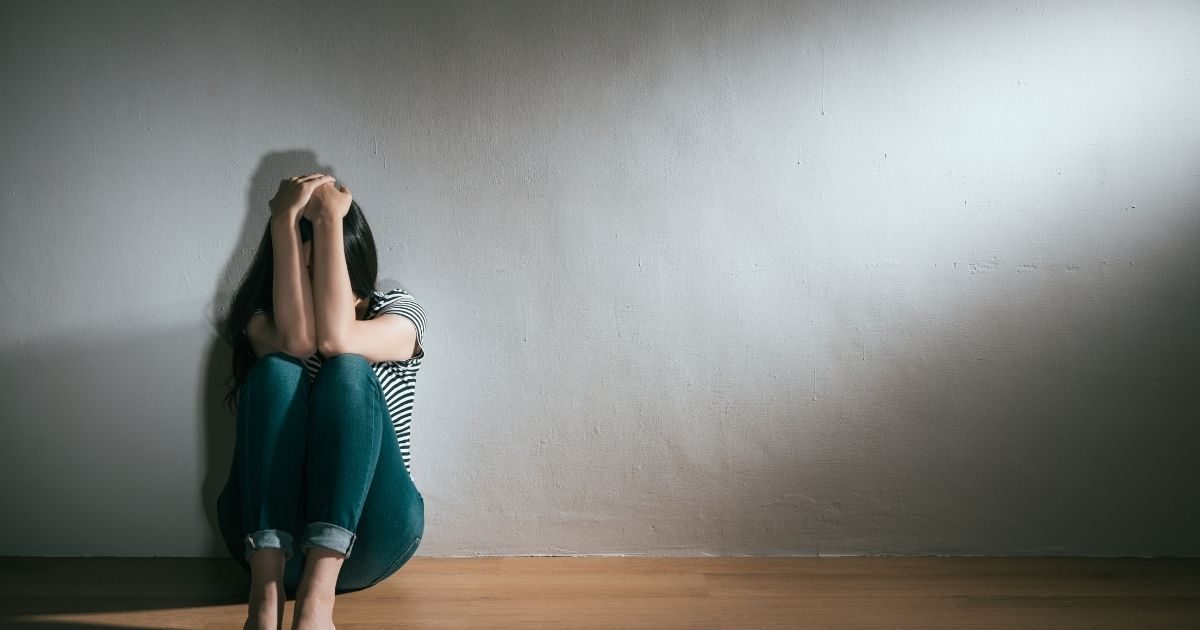
Signs of depression are regarded as a risk factor for developing insomnia. For instance, rapid eye movement (REM) latency is common in people with depression, along with sleep disruption and poor sleep quality. Plus depressed people tend to experience more sleep difficulties and shorter sleep duration.
Not only that, but inadequate sleep can contribute to depression and the worsening of depressive symptoms.
To break the cycle, it’s important to address both aspects of the issue — improve your sleep and combat symptoms of depression.
One way to reduce depression and improve sleep is to combine acupressure with meditation. NuCalm provides a revolutionary tool to help you do this. Buy now and get $20 with the code Recharge2
How Does Depression Affect Sleep? 7 Common Sleep Issues
Lack of sleep is a common symptom of major depression. While there are plenty of other factors that can lead to a sleepless night, depressive symptoms can seriously impact your ability to fall asleep and get a peaceful night’s rest.
1. Depression causes insomnia
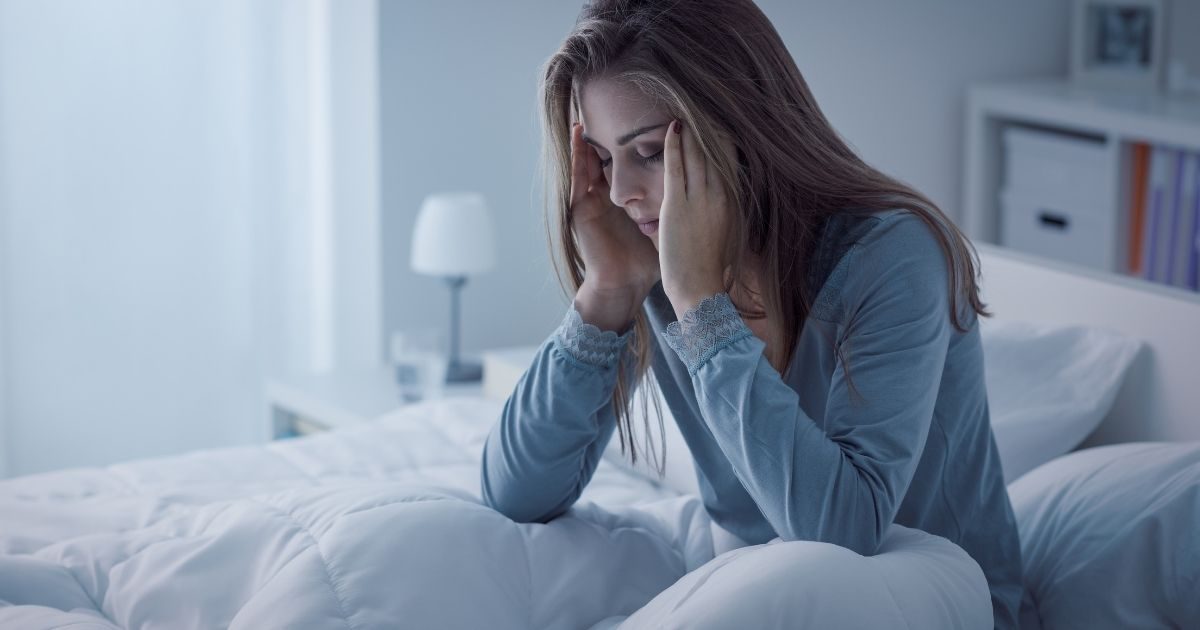
There is a close relationship between depression and insomnia. People with depression may experience insufficient sleep to the point of chronic insomnia.
Studies show that the majority of people with depression suffer from sleep issues, leaving them in sleep deficit. In fact, over 80% of patients with depression suffer from insomnia.
Not only that but people with insomnia have shorter sleep duration, making it harder to recover their sleep debt.
2. Depression disrupts sleep continuity
Continuously waking up at night is one of the most prolific symptoms that accompany severe depression. Research shows that there’s a strong association between sleep disturbances and having a depressive disorder.
Interrupted sleep can have a range of impacts on the body — from decreased focus and concentration to an increase in depressive symptoms — so it’s important to address sleep disturbances.
3. People with depression tend to wake up very early
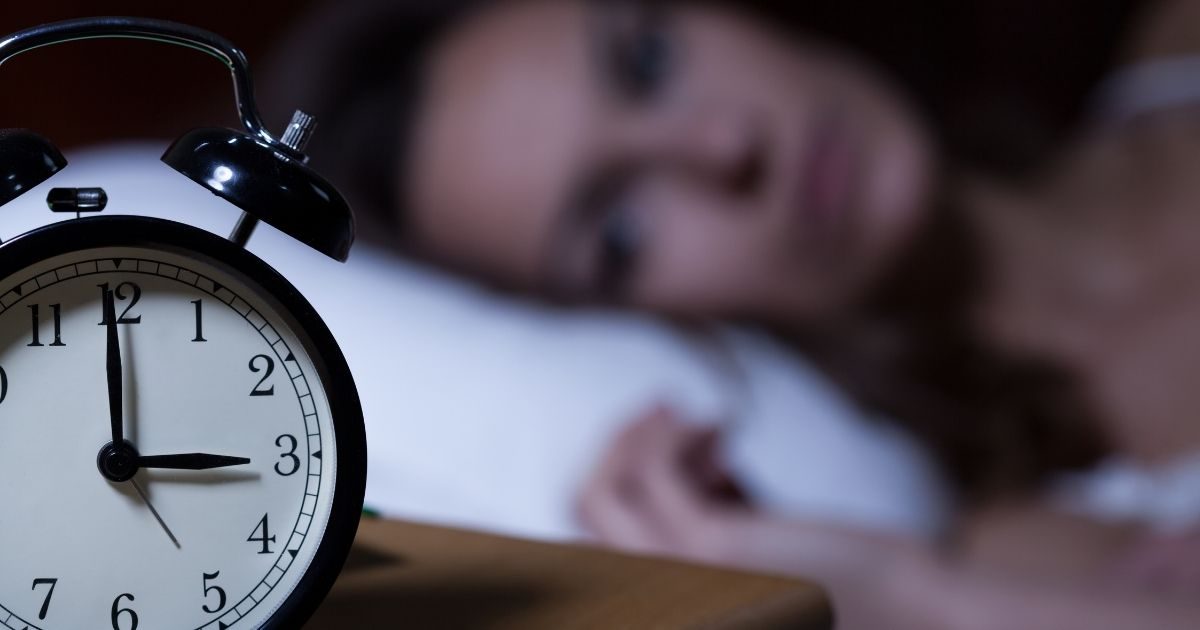
Your biological clock is directly influenced by environmental cues, such as light, which is why normal sleepers can sleep through the entire night but get woken as light comes into the room.
Unfortunately, people who suffer from depression tend to wake up early. Studies show that depression and anxiety interfere with a person’s internal clock, causing a shorter sleep-wake cycle.
This leads to sleep loss.
4. Depression disturbs REM sleep
People with depression experience sleep issues during the different stages of sleep, more specifically during their REM stage of sleep.
Rapid eye movement, or REM sleep, is a stage during your sleep cycle in which brain activity increases and breathing speeds up. REM sleep is important for building the learning and memory parts of the brain. It also helps with emotional regulation.
A mood disorder such as depression can often cause sleep disturbance and affect circadian rhythms. One of the adverse effects of these sleep disturbances is the disinhibition of REM sleep, characterized by shortened REM latency or sleep-onset REM periods, prolonged time in the first REM period, and enhanced REM density.
Disrupting REM sleep in this way — so it’s longer, deeper, and you reach it quicker — can lead to emotional dysregulation. This can make core symptoms of depression worse.
5. Some people with depression feel overly tired
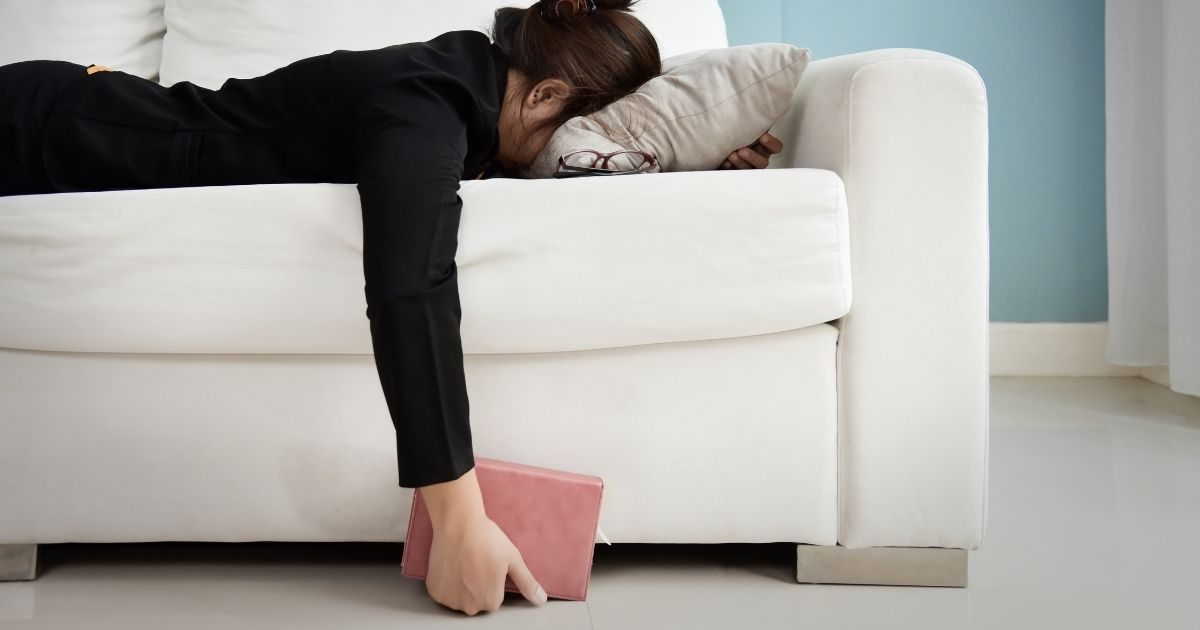
Around 5-35% percent of adult patients with an abnormal sleep profile have also been shown to suffer from hypersomnia — excessive sleepiness. This tends to happen in those who have depression.
Daytime sleepiness can severely affect social activity as well as other daily activities.
One way to treat excessive sleepiness is with sleep restriction, a behavioral treatment for insomnia that limits the amount of time that you allow yourself to sleep in the bed. The goal is to enter deep sleep quicker.
6. Snoring and depression are linked
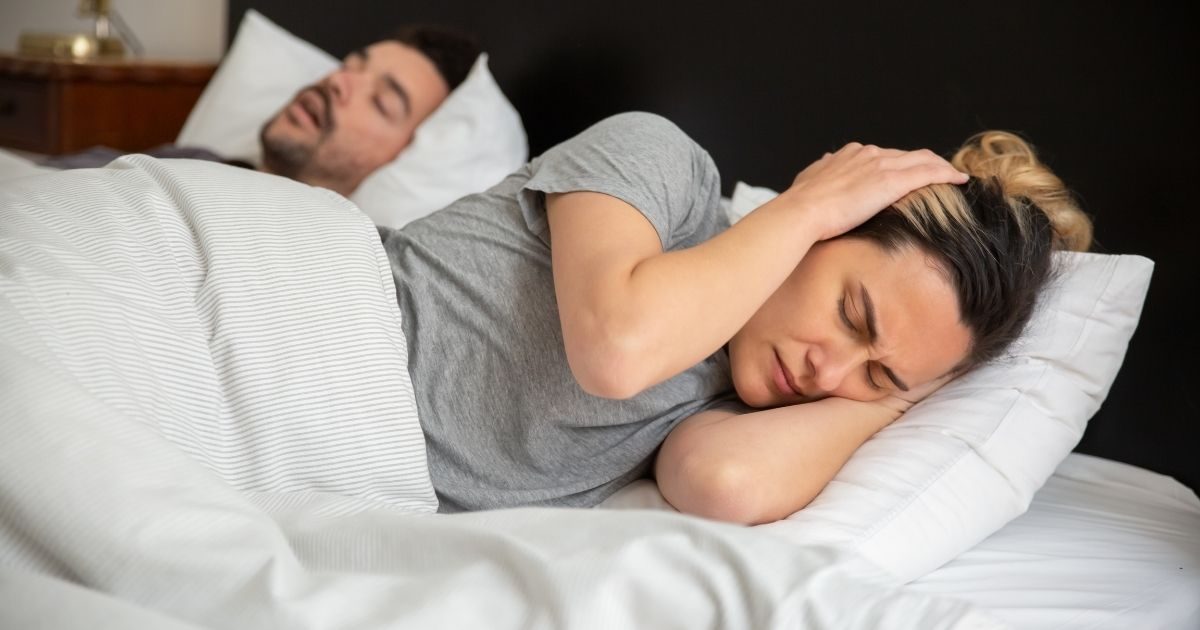
Studies show that there is a link between snoring and depression. Many patients who self-reported complaints of snoring also experience depressive symptoms.
One of the reasons these findings are important is that they may show a link between obstructive sleep apnea and depression. By solving obstructive sleep apnea, you may be able to tackle your depressive symptoms. Plus, depression and snoring combined may be an early indicator of sleep apnea.
If you or your partner suffer from snoring and depression symptoms, talk to a medical professional to see if sleep apnea is an issue.
If you’re simply snoring and it’s leading to sleep deprivation which exacerbates your depression, try the Snorecircle Anti-snoring Muscle Stimulator or the Helps Stop Snoring Spray.
7. Heart rate variability weakens during sleep in depressed patients
Depression has also been shown to increase the risk of heart disease. One of the reasons for this is that heart rate variability weakens during sleep in depressed patients. A weak heart rate puts the body under stress, which causes irregular heartbeats, resulting in heart failure.
This means it’s important to tackle depression early so that it doesn’t impact your physical health and cause deep issues with sleep.
How To Improve Your Sleep-Depression Relationship
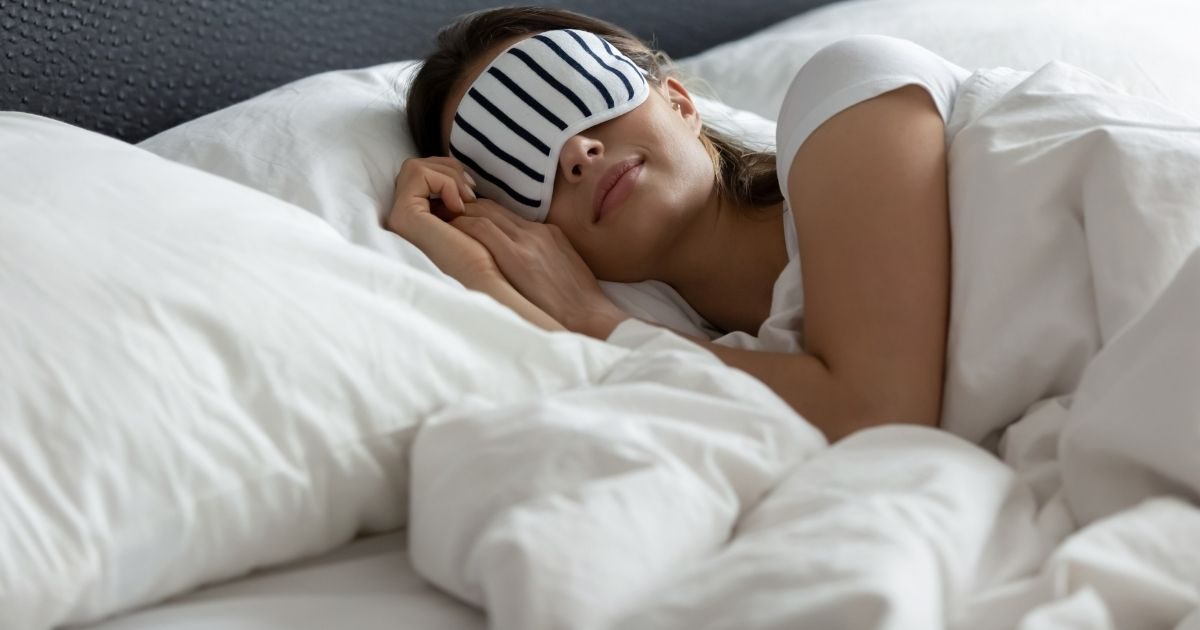
Improving sleep can help depression. Tackling depression can improve sleep. Here are some techniques to help you out with both these hurdles.
1. Create a bedtime routine
You can improve sleep hygiene by creating a bedtime routine that fits your needs. Try winding down at the same time each night by taking a warm bath, lowering lights, reading a book, and practicing gentle exercises like yoga.
2. Consistent bedtime schedule
Going to bed at the same time each night helps to program your circadian rhythms. Make sure you’re getting the same amount of sleep each night and heading to bed at the same time — even on the weekends.
3. Exercise regularly
Depressed patients who engage in physical activity have shown an increase in serotonin and improvement in their symptoms. Not only that but daily exercise is also known to be an effective treatment recommended by many mental health professionals to help you get plenty of sleep.
4. Eat a healthy diet
The food you eat affects your sleep patterns. Not only is it important to eat the correct foods for healthy sleep, it’s also vital to eat at the right times. Plus, a better diet, such as the Mediterranean diet, can help to reduce symptoms of depression.
5. Practice meditation
Meditation is another effective treatment that has shown promise for major depression. Try meditating for at least 10 minutes a day, using sleep meditation videos or a sleep meditation podcast.
6. Speak to a doctor about medication
While there are many natural treatments for clinical depression and sleep disorder problems, many experts will recommend medical treatments too, such as antidepressant medication like selective serotonin reuptake inhibitors (SSRIs). Antidepressant treatment can potentially return your sleep schedule to normal and avoid that vicious cycle once and for all.
7. Try therapy
Another highly promising treatment of depression is cognitive-behavior therapy. Behavioral therapy has been shown to be an effective treatment for depression and sleep issues.
You can also try interpersonal therapy. Patients who engage in interpersonal therapy show a 46% reduction in depression and anxiety.
Conclusion
Does depression affect sleep? Many different peer-reviewed studies have found a correlation between depression and sleep quality.
While it is easy to fall into an endless cycle of sleeping poorly and, subsequently, worsening symptoms of depression, there are lots of ways to combat the effects of both issues to uplift your quality of life.
If you’re looking for a way to combat depression and improve your sleep, try NuCalm. NuCalm combines acupressure and meditation to interrupt your adrenaline response and calm the brain and body. Buy now and get $20 with the code Recharge20.

Welcome to Snoozerville! I’m Dr. Alex Hartley, your guide to the world of restful sleep. With a Ph.D. in Sleep Science and years of experience as a sleep therapist, I’ve dedicated my life to understanding and improving sleep quality. My passion lies in uncovering the mysteries of sleep and sharing practical, science-backed advice to help you achieve the best rest possible. Beyond my academic pursuits, I’m an advocate for mindfulness and relaxation techniques, which I incorporate into my daily routine. At Snoozerville, I aim to transform your nights, combining the latest research with easy-to-implement tips. Whether you’re a chronic insomniac or just looking to improve your sleep hygiene, join me on this journey towards peaceful, rejuvenating sleep.

